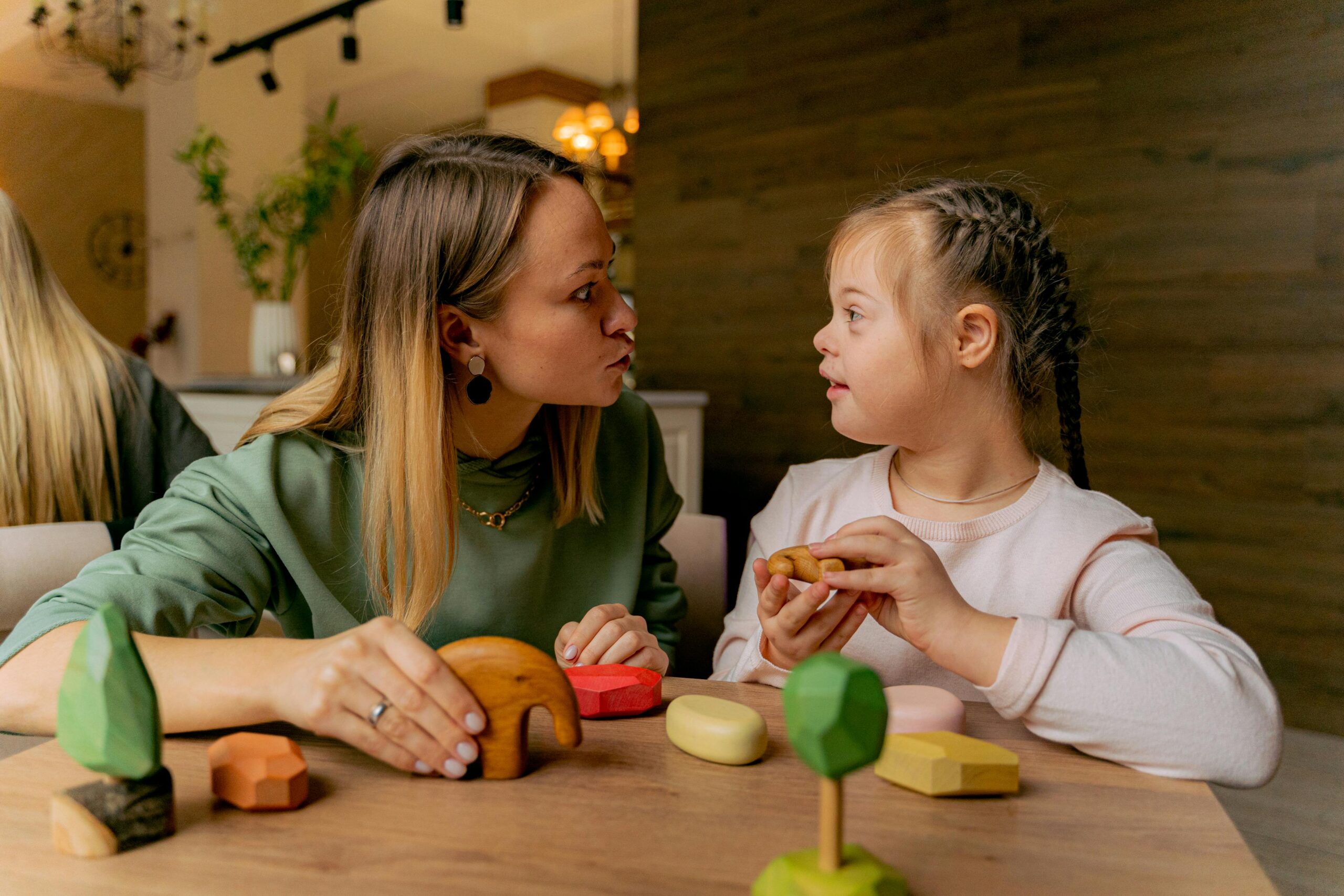As a parent of a child with autism, you’ve likely spent countless nights wondering about your child’s academic future. Will they thrive in school? Can they reach their full potential? How can you best support their learning journey? The answer might lie in ABA therapy and academic skills development – a powerful combination that’s helping children across Maryland unlock their learning potential.
Understanding ABA Therapy and Academic Skills
Every child learns differently, and this is especially true for children with autism spectrum disorder.
Think of ABA as a master key that unlocks various doors to learning – each door representing a different academic skill your child needs to develop.
Picture Sarah, a 7-year-old who struggled with basic math concepts. Traditional teaching methods left her frustrated and withdrawn. Through ABA therapy, her learning was broken down into manageable steps, celebrating each small victory along the way. Today, Sarah confidently tackles her math homework, using the strategies she learned through ABA.
Success Stories
“Move Up ABA has been a lifeline for our family. Before starting therapy, our son struggled with daily routines and communication. Now, he’s more independent and even initiated a conversation with a classmate for the first time! The progress we’ve seen in just six months is truly remarkable.”
- Emily R., Silver Spring, Accountant
“As a single dad, I was overwhelmed trying to manage my child’s behavior. The Move Up ABA team not only provided amazing support for my little girl but also taught me practical strategies to use at home. Their in-home sessions fit perfectly with our busy schedule. I’m so grateful for their patience and expertise.”
- Michael T., Rockville, Middle School Teacher
“We were hesitant about starting ABA therapy, but Move Up ABA’s approach put us at ease from day one. Our twins have made incredible strides in their social skills and self-regulation. The therapists are like extended family now, and we couldn’t be happier with our decision to work with them.”
- Aisha and James L., Simpson, Police Officers
The Foundation of Academic Success
Essential skills development goes far beyond textbook learning. It’s like building a house – you need a strong foundation before adding the walls and roof. Social skills and communication skills form this crucial foundation. When Tommy first started school, he had difficulty raising his hand to answer questions, even though he knew the answers. Through social skills training, he learned classroom etiquette, making it easier for him to participate and showcase his knowledge.
But what exactly do we mean by essential skills? Think of them as the building blocks that support all future learning. Let’s explore each crucial area:
Reading Comprehension and Retention

Reading isn’t just about recognizing words – it’s about understanding and remembering what you’ve read. For children with autism, this can be particularly challenging. We break this skill down into manageable steps:
First focusing on letter recognition and phonics
Moving to word recognition and vocabulary building
Advancing to sentence comprehension
Finally developing full story understanding and analysis
For example, we might start by using your child’s special interests to enhance engagement. If your child loves dinosaurs, we’ll use dinosaur-themed books to practice these skills, making learning both meaningful and enjoyable.
Mathematical Reasoning and Problem-Solving
Math skills build upon each other like building blocks. Our approach includes:
Starting with concrete concepts using physical objects
Moving to pictorial representations
Finally transitioning to abstract mathematical concepts
We’ve seen remarkable progress with children like Maya, who struggled with basic addition. By using her favorite toy cars to demonstrate counting and adding, she not only mastered the concept but began to enjoy math activities
Written Expression and Communication
Writing involves multiple skills working together:
Fine motor skills for handwriting
Language skills for forming sentences
Organizational skills for structuring thoughts
Creative thinking for content generation
We might begin with simple activities like tracing letters in sand or shaving cream to make it tactile and fun, gradually progressing to writing complete sentences and stories.
Organization and Time Management

These fundamental skills impact every aspect of academic life. Our systematic approach includes:
Creating personalized visual schedules
Teaching desk and backpack organization
Developing homework routines
Learning to use planners and calendars
Understanding time management through visual timers
Consider James, who initially struggled with transitioning between activities. Using a visual schedule and timer system, he learned to organize his time and materials, reducing anxiety and improving his academic performance.
Attention and Focus Maintenance
We develop these skills through:
Structured work periods that gradually increase in length
Environmental modifications to reduce distractions
Teaching self-monitoring techniques
Using interest-based activities to build attention span
Incorporating movement breaks strategically
Each of these skills is carefully developed through positive reinforcement and systematic instruction. For example, when working on organization skills, we might start with something as simple as maintaining an organized desk space, then gradually progress to managing homework assignments and complex projects.
Our approach uses a combination of:
Visual supports and schedules
Clear, consistent routines
Immediate positive feedback
Celebration of small victories
Regular practice opportunities
Real-world applications
Remember, just as every child is unique, the path to mastering these skills varies. Some children might excel in mathematical reasoning while needing extra support with written expression. Others might grasp organization quickly but require more time with reading comprehension. That’s why our programs at Move Up ABA are individually tailored to your child’s specific needs and learning style.
How ABA Strategies Enhance Learning
Applied behavior analysis (ABA) strategies are proven techniques that transform how children with autism spectrum disorder approach learning. Our individualized education programs form the foundation of successful ABA therapy. Just as every fingerprint is unique, each child’s learning process requires customized approaches. Through positive reinforcement techniques and discrete trial training, our ABA therapists create engaging learning experiences that promote academic achievement.
The Power of Individualization in ABA Therapy
ABA therapy focuses on developing strategies that align with:
Individual learning styles and intellectual functioning
Personal interests that enhance academic performance
Specific challenges that affect skill development
Family goals for essential skills mastery
Cultural considerations that influence the learning process
Implementing Effective ABA Techniques
Discrete Trial Training (DTT) and Skill Development
Our registered behavior technicians use discrete trial teaching to break down complex skills:
Clear instructions that support language development
Systematic prompting to reinforce positive behavior
Consistent reinforcement to increase desired behaviors
Data collection to track skill acquisition
Progressive steps to enhance communication skills
For example, when teaching academic skills, we might structure the learning process like this:
Breaking skills into manageable components
Using positive reinforcement techniques
Practicing in a structured environment
Applying skills in various aspects of learning
Monitoring academic productivity
Natural Environment Teaching in Educational Settings
We believe in creating a supportive learning environment that:
Utilizes everyday situations for teaching appropriate behavior
Incorporates ABA principles in classroom settings
Promotes social interactions with other children
Builds functional communication training
Develops strategies for daily living skills
Positive Reinforcement Strategies
Our ABA program emphasizes:
Immediate recognition to reinforce positive behavior
Customized systems to support children with autism
Natural consequences that teach appropriate behavior
Social praise to encourage desirable behaviors
Progressive goals to improve academic skills
Building Core Academic Competencies

Language development and receptive language skills form crucial building blocks for academic success. Through targeted ABA interventions and social skills training, we help children overcome challenges in the classroom setting. Our techniques focus on enhancing academic skills while building positive behaviors.
Language Development Framework
We address multiple aspects of communication:
Receptive Language Skills Development
Following complex instructions
Understanding various aspects of communication
Processing information in school settings
Comprehending social interactions
Developing cognitive development skills
Expressive Language and Social Skills
Building functional communication training
Enhancing social interaction abilities
Improving academic productivity
Developing crucial role in peer relationships
Strengthening overall development
Boys with ASD were found to have higher anxiety and fear of social interactions than girls with ASD. (Syriopoulou-Delli, C. K., Agaliotis, I., & Papaefstathiou, E. 2016)
Academic Skill Integration
Our ABA techniques combine:
Reading comprehension with social skills training
Mathematical concepts with discrete trial teaching
Writing skills with positive reinforcement
Social interactions in classroom settings
Executive functioning for daily living skills
The Role of Professional Support
At Move Up ABA, our trained behavior analysts understand that every child’s path to academic achievement is unique. Our behavior analysis experts provide targeted interventions while serving as dedicated advocates for your child’s success, ensuring consistency between therapy sessions and home life.
Our Professional Approach
We provide comprehensive support through:
Expert Team Members
Experienced behavior analyst professionals
Skilled registered behavior technicians
Specialists in related developmental disorders
Experts in pivotal response treatment
Educational support professionals
Collaborative Care Using ABA Principles
Our team works to:
Develop targeted interventions
Monitor behavioral analysis progress
Adjust ABA strategies as needed
Provide support children need
Coordinate across educational settings
Building Lasting Success
We ensure positive outcomes through:
Regular assessment of skill acquisition
Progress tracking in various skills
Goal adjustment based on key components
Measurement of positive behavior
Integration of ABA principles
Consistency Across Settings
We focus on helping children with autism succeed in:
Home environment applications
School settings coordination
Community skill development
Family activity participation
Social interaction opportunities
Move Up ABA’s comprehensive approach to applied behavior analysis ABA ensures that your child receives the support they need to achieve academic success. Our behavior analysts and registered behavior technicians work together to create a structured environment that promotes positive outcomes and enhances communication across all settings.
Building Long-term Success
Cognitive development and overall development require a comprehensive approach. Move Up ABA’s programs are designed to support your child not just in the present, but well into their future. Our educational settings are carefully structured to promote both immediate progress and long-term success.
Collaborative Learning Approaches

One of Move Up ABA’s unique strengths is our focus on peer interaction. We understand that learning alongside other children can be both challenging and rewarding. Our carefully supervised group activities help children develop crucial social skills while building academic competencies. Parents often tell us how amazed they are to see their children forming friendships while mastering new skills.
ABA Therapy and Academic Skills: Your Next Steps
Every parent’s journey begins with a single step. If you’ve been nodding along while reading this article, recognizing your child’s challenges in these scenarios, know that you’re not alone. Move Up ABA is here to help Maryland families navigate this journey. Our comprehensive ABA programs combine proven strategies with compassionate care, creating a supportive environment where your child can thrive academically and socially.
Take the first step toward supporting your child’s academic success by reaching out to Move Up ABA. Our team of caring professionals is ready to create an individualized program that addresses your child’s unique needs and challenges. We understand that choosing the right support for your child is a significant decision, and we’re here to answer all your questions and concerns.
Remember, every child has the potential to succeed – sometimes they just need the right support system to help them shine. Contact Move Up ABA today to learn how we can help your child develop the academic skills they need for a bright future.
400 E Pratt St, Floor 8 Baltimore , Maryland 21202, United States
Questions?
Email Us: intake@moveupaba.com
Call Us: (410) 469-1090






